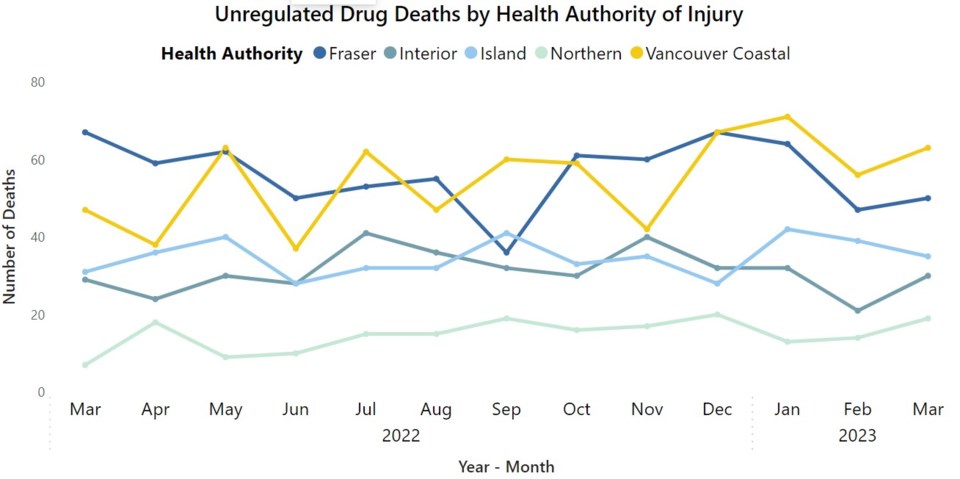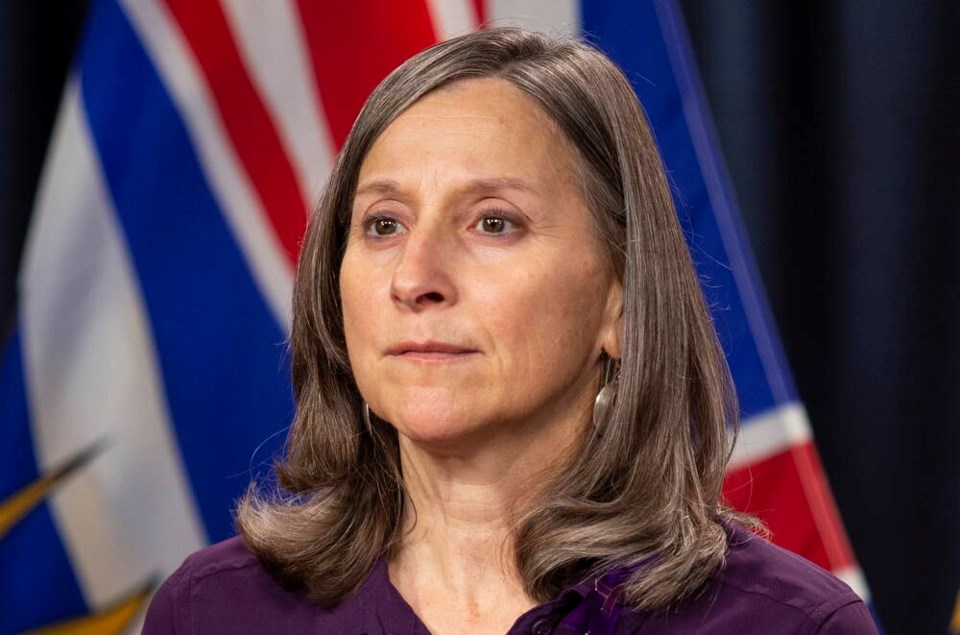Four more Burnaby lives were lost to illicit drugs over the past two months, new data shows.
A report released by the BC Coroners Service on Tuesday (April 18) shows Burnaby's total for 2023 has risen to six after two were reported in January.
The province says a total of 374 deaths were recorded across B.C. during February (177) and March (197), equating to roughly 6.4 lives lost per day.
Since the start of the year, 596 lives have been lost, making the total the second-highest ever recorded in the first three months of a calendar year.

"On April 14, we once again observed the anniversary of the longest public-health emergency in our province’s history," chief coroner Lisa Lapointe said in a news release.
"Since the emergency was first declared, more than 11,000 people have lost their lives due to the unregulated drug supply.
"This is a crisis of incomprehensible scale, and I extend my deepest condolences to everyone who has experienced the loss of someone they loved."
The townships with the highest number of illicit drug toxicity deaths in 2023 to date are Vancouver, Surrey and Greater Victoria.
The BC Coroners Service says there have been two deaths at overdose prevention sites: one in 2022 and one to date in 2023.
"In February and March, we lost 374 people to the toxic illicit drug supply. These were friends, family, neighbours and co-workers, and I mourn with British Columbians who are grieving their irreplaceable loss," Minister of Mental Health and Addictions Jennifer Whiteside added in a seperate statement.
"The toxic drug crisis continues to devastate families and communities throughout the province, and I remain steadfast in my commitment to do everything possible to turn the tide and end this public-health emergency.
"Our government won't stop working until we have an integrated system of mental-health and addictions services in place that is available for people wherever and whenever they need it."

